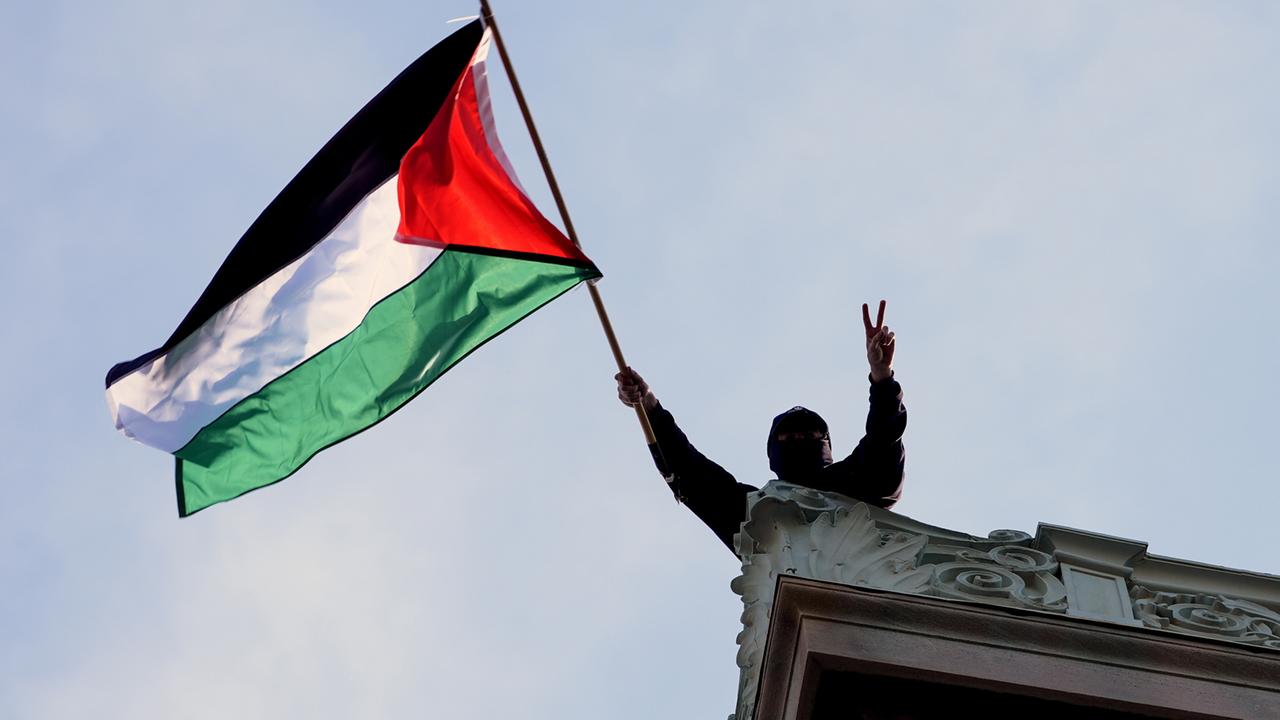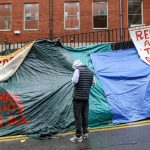Police operations, arrests and blockades: The situation surrounding pro-Palestinian protests at US universities is heating up. Students who occupied a university building in New York are now threatened with exmatriculation.
Squatting for a free Palestine. For an end to the Gaza war. Dozens of Columbia University students take over a building on campus. Demonstrators, some of whom were masked, broke windows, barricaded entrances and unfurled a Palestinian flag. Hamilton Hall is the building that was occupied in the 1960s to protest the Vietnam War.
Despite all the threats to evacuate the protest camp – they have been holding out for over a week. Gabriela was there from the beginning. The student names one of her main demands on the elite university: “There are many institutions that do business with the apartheid state of Israel. We urge them to cut these relationships with Israel.”
Occupiers threatened Exmatriculation
Columbia University's $14 billion endowment is managed by its own investment company. The money flows, among other things, to companies that cooperate with Israel – including in the weapons and tech industries. The university has refused to cut these ties.
But university president Minouche Shafik at least agreed to review investments in companies suspected of being war-related. The students are now threatened with exmatriculation because of the house occupation, explained university spokesman Ben Chang. “They no longer have access to teaching or leisure facilities. They can no longer complete their degrees either.”
It is regrettable that the demonstrators decided on such an escalation. Chang made it clear that the measure was not a curtailment of freedom of expression: “This is about the actions of the protesters – and not the reason for their protests.”
Accusation of vandalism and disruption of university operations
The occupiers were given the opportunity to leave the building peacefully. But they rejected that. In addition to the vandalism, a few dozen protesters would disrupt university operations for 37,000 students – many of them shortly before their exams. Some Jewish students reported anti-Semitic attacks. They felt threatened.
Student Gabriela is skeptical. There were many Jewish fellow students at the protests, she says. “It's a shame that the university portrays us as violent. This is a mixture of all students.”
Carry feels the same way too. The Jew, who lived in Israel for a long time, graduated from this university 20 years ago. The fact that young people are now being arrested or expelled from the university because they expressed their opinions affects them: “I haven't experienced anything anti-Semitic here. And as a woman with deep Jewish roots, I'm probably credible. I've been experiencing these demonstrators completely peacefully for days . I talk to young people who are like I used to be here.”
Concern about “disproportionate” measures
The New York police say it is a security risk. But without the university's request, she is not allowed to intervene on private property. Almost two weeks ago, an operation by the NYPD sparked the protests. Since then, they have spread across colleges across the United States. Since then, around 1,000 students and university staff have been arrested – at least temporarily.
The UN human rights representative Volker Türk was “concerned”. Some criminal prosecution measures “appear disproportionate in their impact”. UN Secretary General Antonio Guterres also warned: “It is important to guarantee freedom of expression and demonstration. At the same time, hate speech is unacceptable.”





